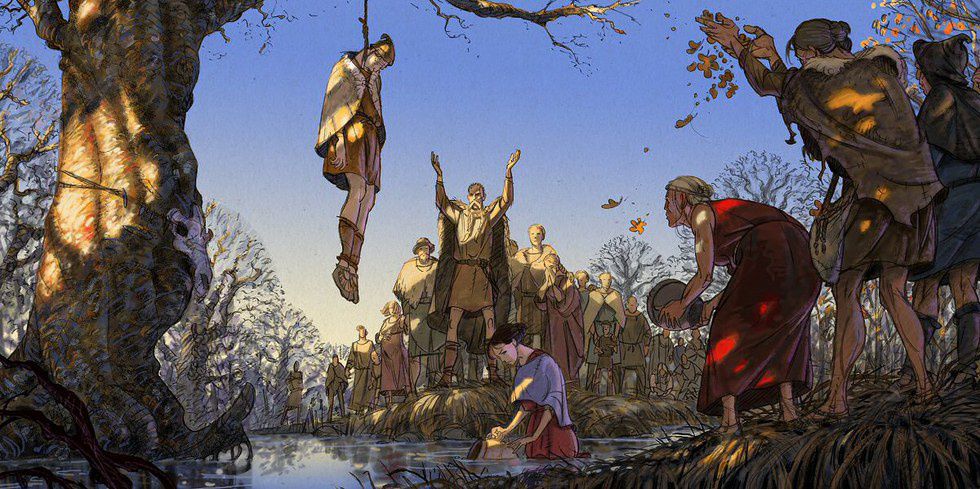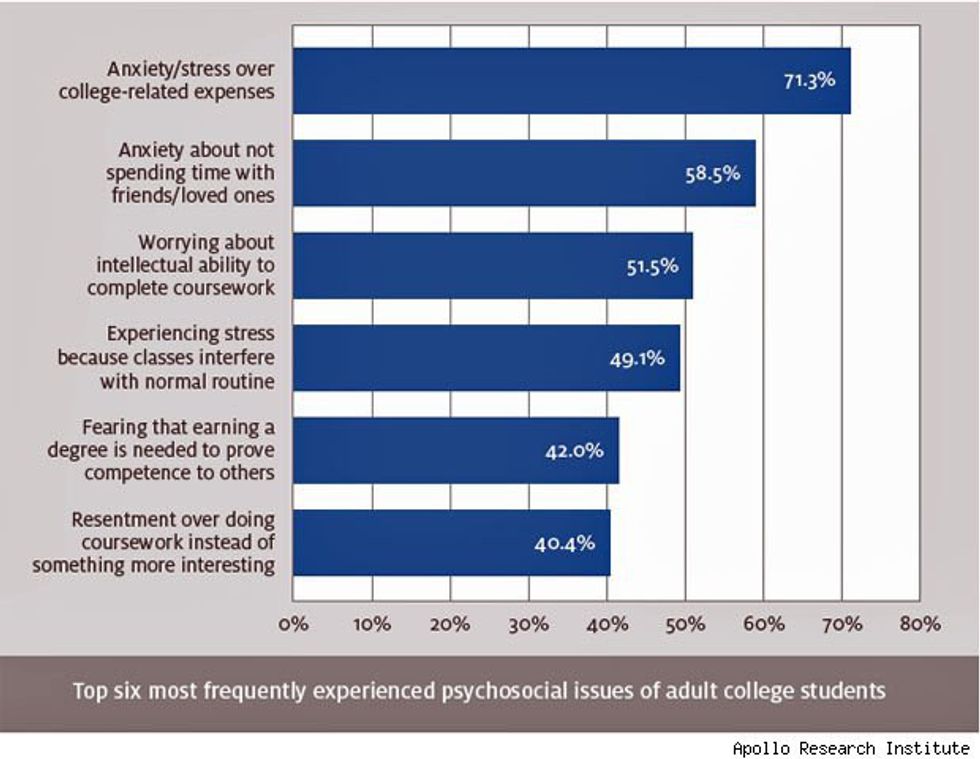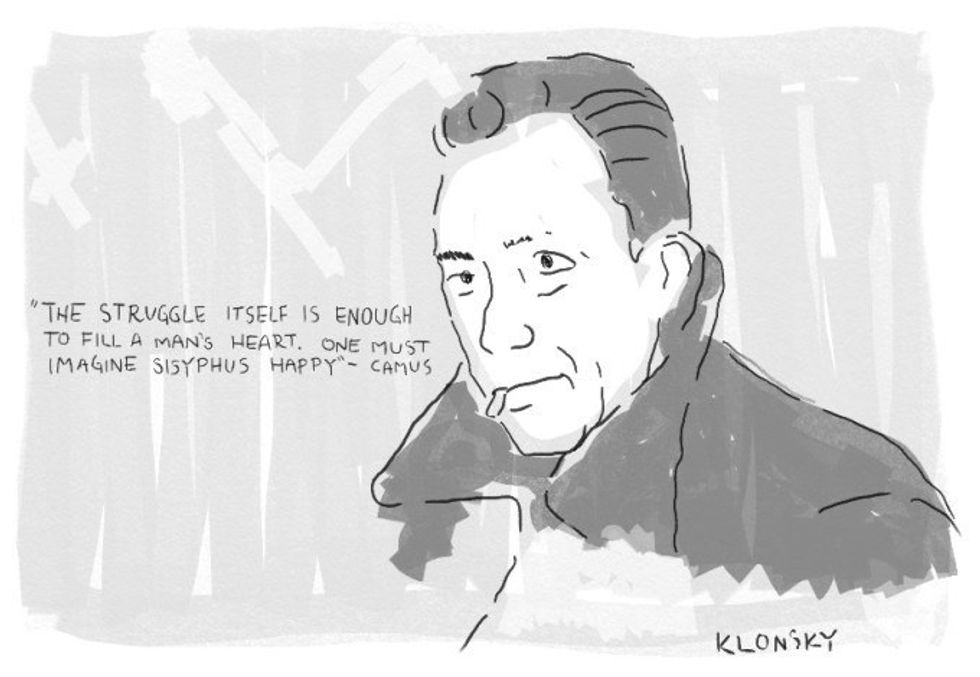The Oxford Living Dictionary describes sacrifice as, "An act of slaughtering an animal or person or surrendering a possession as an offering to a deity." However, heavy metal this form of sacrifice is, the type of sacrifice that the typical United States citizen experiences does not involve bloodletting. Instead of offering up something or someone else to a deity, modern people offer something of themselves to be able to obtain an object or opportunity that they would like. The Oxford Living Dictionary describes this sacrifice as, "An act of giving up something valued for the sake of something else regarded as more important or worthy." No matter what an individual gives up, the contemporary form of sacrifice is an important act that people experience in diverse walks of life.
Throughout European antiquity, ancient druids sacrificed people in swampy areas called bogs (See The Atlantic). Today, college students sacrifice sleep in order to complete an assignment.
In the contemporary U.S., the biggest human sacrifice is that of time. Plenty of film's modern-day classics like There Will Be Blood, The Santa Clause, Liar Liar, Mrs. Doubtfire, and a list of others deal with a parent or parents who cannot spend time with their children. The common child-parent disconnect in these movies is the reason of work.
This article from The Daily Mail titled, "Spending too much time at work when the children were young is a parent's biggest regret" deals with the issues that parents face when sacrificing family time for work time. The article states that out of parents who spend a lot of time at work, "two-thirds admit they would do things differently if they could have the time again." All this being said it is the nature of life in the working man or woman in the United States to sacrifice things that are important in order to be successful.
...Except a feeling of deep remorse for spending too much time at work and not with your child. Source: Liar Liar.
Although not yet fully fledged into the workforce, college students sacrifice time, money, and mental health in order to maintain a high level of achievement and academic success. Individuals outside of the college institution may consider being a college student a labor of making it to class and earning good grades on tests.
However, what students learn as soon as they enter college is that classes require three hours of homework and studying for every hour of class time. In order to graduate in the expected four years, a student will be required to take their maximum amount of units. A maximum amount of units is around eighteen or nineteen.
The homework from these units alone equates to more work time than many full-time jobs, and that is not accounting for the time a student spends in class. If a college student has a job along with their units, they are likely sacrificing more than just their time and hard work to earn a passing grade. In many circumstances, students sacrifice their relationships, their happiness, and their mental health to achieve a passing grade.
When the stress of graduating college is coupled with the rising monetary cost of attending college, it is impossible for a student to come away from their college years without sacrificing.
I understand the stress of a working college student and the sacrifices they make. Not unlike the pagans of ancient times, I give up my well-being and my relationships with others in order to please those who have power over me.
Instead of pleasing a god with a pound of flesh, I sacrifice all of the positive attributes I have in order to please my boss, college professors, coworkers, friends, and any person who has prospects in my future professional development.
With these things considered, it is important to question the rationality of living a long life but a life of sacrifice. I can continue a life where I give a bit of myself to all I do, or I can live life like a pagan because they at least ended their suffering in one quick act.
When confronted with this question, I turn to one man by the name of Camus. Camus is a famous French philosopher who wrote The Myth of Sisyphus. It talks about the sacrifices and the lives of humans. Camus says that life is unfair and full of suffering. He declares that to defeat this suffering, humans must embrace how life is unfair or absurd.
Once an individual understands that life is not fair and that they will experience continual hardship, they will also understand that along with hardship there is beauty. Life is worth living if an individual embraces the sacrifice with the fulfillment and joy that comes with it.
Through the sacrifice humans experience in life, it is important to look beyond. Unlike the pagans of old, individuals sacrifice to make a deeper meaning in life. People are civilized, cultured, and look to find fulfillment in themselves as well as the world around them.
Contemporary sacrifice is just a sacred act as it was thousands of years ago, but it is up to humanity to appreciate this ceremony they undergo every day.
























